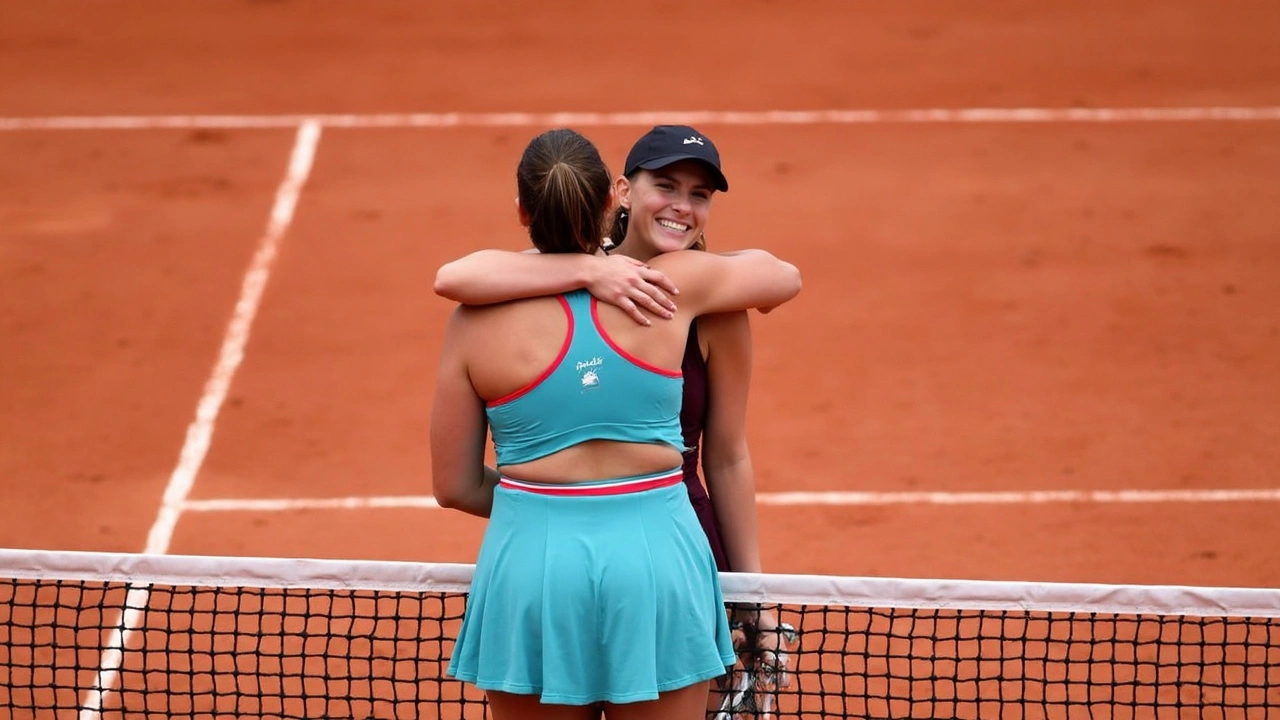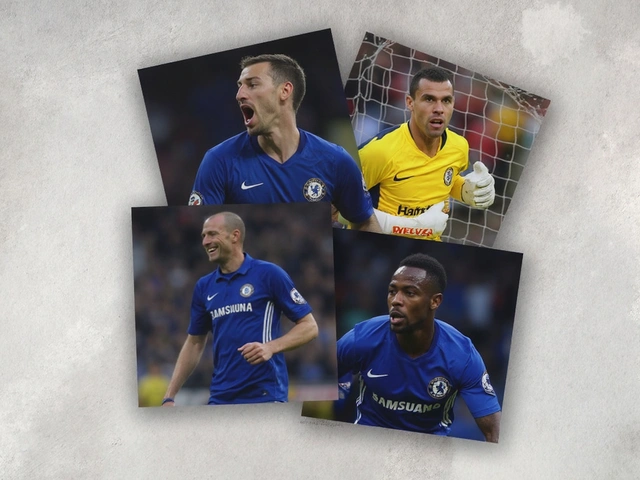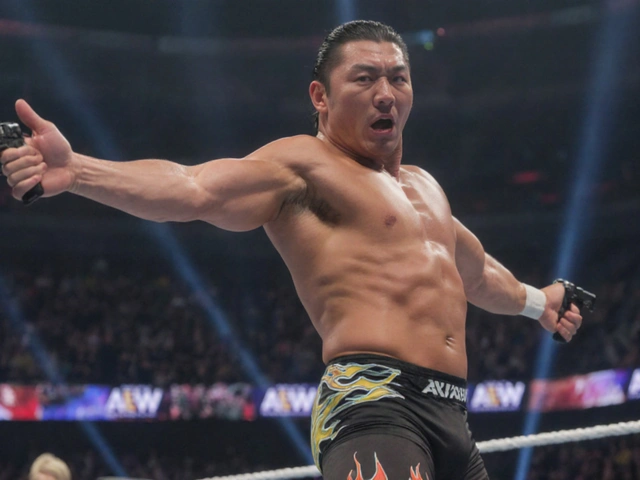Pressure Mounts as Sabalenka Faces Anisimova
The excitement around this year’s Wimbledon women’s semi-finals is electric. With the usual favorites out, all eyes are on four players hungry for their first title on London’s grass. Aryna Sabalenka, the top seed and a familiar face in Grand Slam finals, arrives armed with the confidence of an Australian Open double (2023 and 2024) and a fresh 2024 US Open title. But while her trophy cabinet looks impressive, she’s still chasing Wimbledon glory—a prize that has slipped through her fingers before.
Skeptics wonder if Sabalenka has learned enough from her heartbreak at Roland Garros, where her loss to Coco Gauff turned heads. Her challenge? Keeping cool when the stakes shoot sky high. Talent is not the question—her aggressive baseline play and unstoppable serve have left opponents scrambling. But as anyone who watched her tense French Open matches knows, emotions often threaten to derail her game. She’ll need to stay razor-sharp mentally, especially up against her semi-final rival.
Amanda Anisimova, on the other end, is in the midst of a dream run. Seeded 13th, the American’s journey through the draw has been clinical. She swept aside Yulia Putintseva, Renata Zarazua, Dalma Galfi, Linda Noskova, and Anastasia Pavlyuchenkova with authority. What’s refreshing about Anisimova’s campaign is her new level of steadiness under pressure, previously thought to be her main weakness. She’s dialed in, refusing to blink against higher-ranked players. Anisimova’s range of groundstrokes and ability to dictate rallies from both wings have turned her into a dark horse that nobody wants to face right now.
Swiatek and Bencic Set for a Defining Clash
Then there’s Iga Swiatek—her name alone is enough to make opponents nervous. With five Grand Slam titles already, Swiatek is a household name among tennis fans. What she’s missing is a Wimbledon crown, and that’s the missing puzzle piece she’s determined to get this year. Her game is built on relentless baseline consistency, but it’s her mental discipline that truly sets her apart. In her quarterfinal match against Liudmila Samsonova, Swiatek hardly put a foot wrong, outsmarting her opponent with signature tactical switching and flawless defense.
Standing between Swiatek and a slot in Wimbledon’s final is Belinda Bencic, who, for once, isn’t weighed down by expectations. Unseeded in this tournament after tough seasons marred by inconsistent form, Bencic has rediscovered the steel that once brought her to the world’s top 10. Her victory over Mirra Andreeva was a reminder to critics that her blend of precise shot-making and court craft can topple anyone when she’s firing on all cylinders.
Bencic thrives when underestimated. Her return to form is one of the feel-good stories of this Wimbledon. Facing Swiatek, she has nothing to lose and every reason to play freely. Expect lengthy rallies, clever angles, and a clash between Bencic’s variety and Swiatek’s calculating approach.
With a guaranteed new Wimbledon champion, the women’s game is tilting into new territory. For fans used to seeing repeat winners, this is the ultimate plot twist—fresh rivalries on the horizon, careers redefining themselves, and new names eager to put their mark on tennis history.







Joseph Conlon
Sabalenka’s tendency to let emotions dictate play has turned every high‑stakes match into a psychological chessboard, and Wimbledon 2025 is no exception. The narrative that her aggressive baseline style alone will crack the grass‑court fortress ignores the silent battles happening behind the scenes. While the crowd applauds her thunderous serves, the undercurrent of unaddressed pressure grows louder with each point won. She appears to be riding a wave of confidence from her Australian Open double, yet that confidence can quickly morph into complacency when the stakes climb. The article glosses over the fact that she lost the decisive momentum against Gauff at Roland Garros, a loss that still haunts her strategic mindset. The mental discipline she displayed in the US Open was a product of a carefully orchestrated routine-not an innate resilience that can be summoned on demand. Moreover, the persistent focus on her “aggressive” label distracts from her need to temper aggression with patience during long rallies on grass. The semi‑final against Anisimova will test whether she can transition from raw power to calculated restraint. If she fails to curb the volatility, the very same power that propelled her to the final could become the weapon that slices through her own game. Critics often miss that her footwork on grass is still being refined, a subtle deficiency that can be exploited by a player with Anisimian’s newfound steadiness. The article’s optimism about her mental readiness feels premature, as it overlooks the pattern of her collapsing under pressure in previous finals. Anisimova, on the other hand, has shown a remarkable ability to silence internal doubts, a skill that can outshine raw talent when it matters most. The reading also neglects the importance of recovery periods between matches, which are crucial for maintaining mental clarity. Sabalenka’s recent schedule has been packed, leaving little room for the introspection required to rebuild confidence after a loss. While the statistician’s eye may highlight her serve speed, the human eye must watch her body language for signs of strain. The final verdict on whether she can secure her first Wimbledon will hinge on her capacity to transform emotional energy into strategic composure. In sum, her path to the trophy is as much about mental engineering as it is about physical prowess.
Mohit Singh
Sabalenka’s fire on the court can feel like a double‑edged sword, blazing bright but scorching the very footing she stands on. The article paints her as unstoppable, yet that narrative sidesteps the flicker of doubt that shadows every powerful swing. Her aggressive demeanor sometimes borders on reckless, and that can cost precious points when the pressure spikes. It’s not just about power; it’s about channeling that energy without letting it explode in the wrong direction.
Damian Liszkiewicz
In the grand tapestry of this tournament, each player weaves a thread of unique purpose 🌟. Sabalenka’s ambition shines like a comet, while Anisimova’s newfound stability grounds her like ancient oak roots. Swiatek’s pursuit of the elusive Wimbledon crown reads like a modern fable, and Bencic’s resurgence reminds us that the phoenix can rise from ashes. The beauty lies in their contrasting philosophies: power versus poise, experience versus hunger. Together they compose a symphony that resonates beyond the green courts, inviting us to reflect on the nature of competition and growth. 🎾✨
Angela Arribas
The post contains a few grammatical slips: “has slipped through her fingers before” should be “has slipped through her fingers in the past.” Also, “her fresh 2024 US Open title” is redundant; the word “fresh” is unnecessary. Minor edits could sharpen the narrative.
Sienna Ficken
Oh, look at the glittering parade of “big‑name” champions, as if Wimbledon were a Hollywood red carpet and not a grueling battle of wills. Sabalenka’s “aggressive baseline play” gets lauded while the same word is used to excuse her occasional tantrums-talk about selective praise. And let’s not forget the “dark horse” label for Anisimova; she’s barely a foal at this point, yet suddenly she’s the whole herd. Swiatek’s “missing puzzle piece” metaphor is cute, but perhaps the piece is actually a reality check. Bencic’s “feel‑good story” feels like a soft‑serve sundae on a hot day-sweet but fleeting.
Zac Death
From my perch as a laid‑back observer, I can see that every contender brings something fresh to the grass. Sabalenka’s raw power is undeniably eye‑catching, but power alone doesn’t guarantee a crown; timing and composure matter just as much. Anisimova’s recent steadiness could be the secret sauce that fuels a surprise upset, especially if she keeps her nerves in check. Swiatek’s relentless consistency is a hallmark of champions, yet Wimbledon has a way of demanding adaptability beyond baseline endurance. Bencic, riding the wave of renewed confidence, might just surprise everyone by playing with a liberated spirit. The real story isn’t just who’s got the biggest titles, but who can harness their strengths while mitigating their flaws. In the end, tennis is a mental chess match as much as a physical duel, and any of these athletes could checkmate the rest.
Lizzie Fournier
Each player’s journey adds a unique shade to the Wimbledon canvas, making the semifinals a must‑watch spectacle.
JAN SAE
What a compelling breakdown! Your insight on Sabalenka’s mental engineering is spot‑on; indeed, the psychological component can make or break a match. Keep in mind that the transition from aggression to restraint often hinges on a player’s ability to breathe rhythmically between points-something coaches emphasize heavily. Great analysis, and thanks for highlighting those nuances!!!
Steve Dunkerley
Your poetic framing captures the essence of the tournament beautifully. From a technical standpoint, the contrast between Sabalenka’s high‑velocity serve (averaging 115 mph) and Anisimova’s baseline control (rally length median of 7 shots) underscores the strategic divergence. Such metrics illustrate the tactical depth you allude to, reinforcing the symphonic metaphor.
Jasmine Hinds
Totally feel the vibe you’re sending! 🌈 Wimbledon’s mental chess is 🔥 and every player’s vibe matters. Let’s see who can keep their cool and bring the win home :)
Madison Neal
Appreciate the colorful take-your sarcasm cuts through the hype nicely. The “dark horse” label often inflates expectations, and your critique reminds us to stay grounded while still celebrating breakthroughs.
John Crulz
Interesting point about the double‑edged nature of aggression. It would be beneficial to explore how Sabalenka could balance intensity with strategic patience, perhaps by incorporating more varied shot selection during high‑pressure moments.
Anita Drake
Regardless of who lifts the trophy, these semifinalists embody the spirit of resilience and evolution in women’s tennis. Their diverse styles and stories enrich the sport, offering fans a captivating narrative that transcends any single victory.